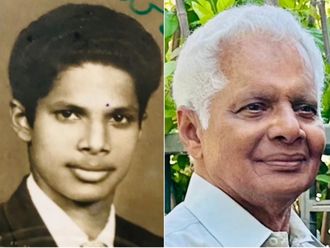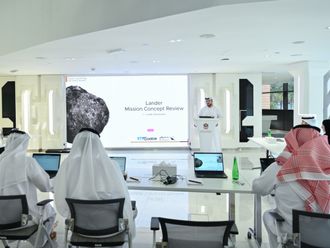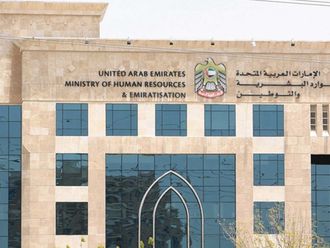All private schools will have to comply with new Ministry of Education and Youth rules governing their operations.
Minister of Education and Youth Dr Ali Abdul Aziz Al Sharhan, according to the Arabic daily newspaper Al Bayan, has implemented Federal Law 28, passed in 1999, and scrapped all previous regulations which contravene the 1999 legislation.
The law comprises 100 articles and represents the biggest shake-up to the regulations governing private schools in recent years.
A major change contained in Federal Law 28 is that it will be mandatory for private schools which adopt a curriculum other than Arabic to teach Islamic studies, the Arabic language and social studies to Muslim students.
Other important aspects of the new regulations include laying down specifications for school buildings and nurseries, making the teaching of Arabic to non-Arab speakers mandatory up to grade 9, restrictions on fees charged by private schools, laying down minimum salaries for teachers and setting out the maximum number of periods to be taught by a teacher each week.
According to Al Bayan, private schoolteachers must be paid a minimum of Dh2,000 and not less than Dh1,500 if they work for an educational institute or centre. In addition, all teachers are entitled to end of service benefits according to the labour law.
The maximum number of periods which an individual teacher should teach each week is 24 if the period lasts 45 minutes, or 27 if the period lasts 40 minutes.
Federal Law 28 defines a private school as any non-government school used for educational purposes, from nursery to secondary school levels, and which adopts the Ministry's own curriculum or uses a curriculum approved by the Ministry of Education and Youth.
The law will apply to all Arabic private schools, foreign private schools and so-called community schools. Federal Law 28 sets out the conditions under which a private school will be licensed by the Ministry.
It states that a school must be located where it can be accessed easily and safely by its pupils. It must be away from sources of noise and pollution and any "agent" that can affect the teaching process. Important services, such as water and electricity, must be available at the location.
Nurseries, the law states, should be on the first floor of the building they are located in and classrooms must be spacious enough to allow freedom of movement. There should also be two adjoining rooms set aside as a medical clinic.
On the curriculum to be taught by non-Arab private schools, the law states that the curriculum must be approved by the Ministry. In addition, non-Arab schools must teach Islamic studies which is mandatory for Muslim pupils and optional for non-Muslims.
They must also provide Arabic teaching for all Arab pupils and teach Arabic to all students, whose mother tongue is not Arabic, up to grade 9. Social studies is also a mandatory subject for all pupils up to grade 9.
On fees, the law prohibits schools from charging fees for the full year in advance. Fees should be paid at the beginning of each term, or on a monthly basis. Schools will be allowed to charge additional fees, fixed annually, for uniforms, transport and health checks.
Schools will also be allowed to charge a maximum Dh500 admission fee before the start of the academic year which should then be deducted from the school fees.
Federal Law 28 prohibits any school from barring a pupil for non payment of school fees. Instead, the law states, the pupil should be suspended temporarily and the father warned up to three times. If the situation is not resolved, the school can refuse to enter the pupil for examinations or issue a transfer certificate required to move to another school.
The law also bans the levying of fines on pupils if there is any delay in paying the school fees.
If a pupil leaves the school prematurely, a school will be entitled to charge a full month's school fees if the pupil has spent two weeks in the classroom, two months' fees for up to one month in the classroom, and three months' fees for more than a month.
New private school rules require teaching of Islamic studies
All private schools will have to comply with new Ministry of Education and Youth rules governing their operations.











